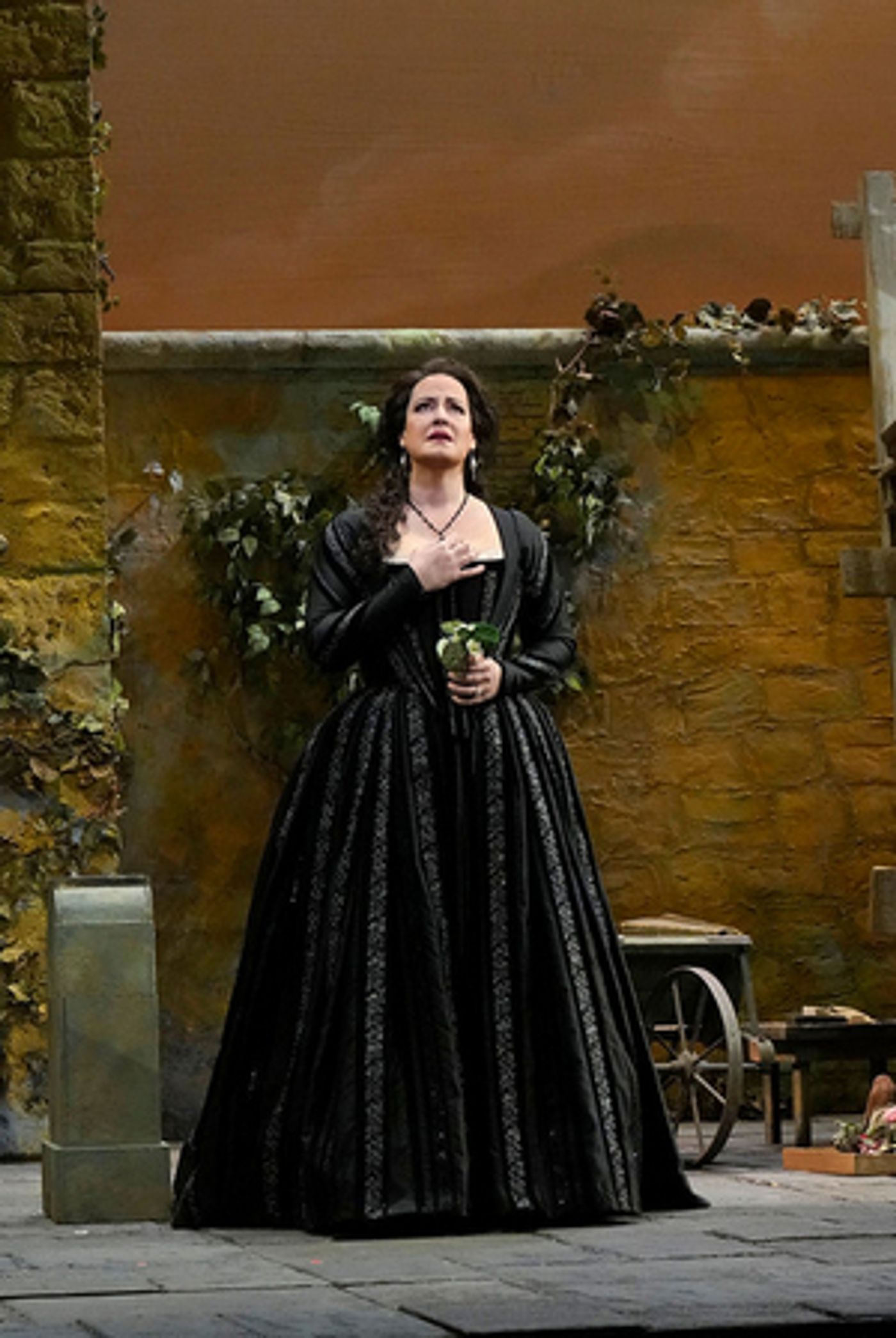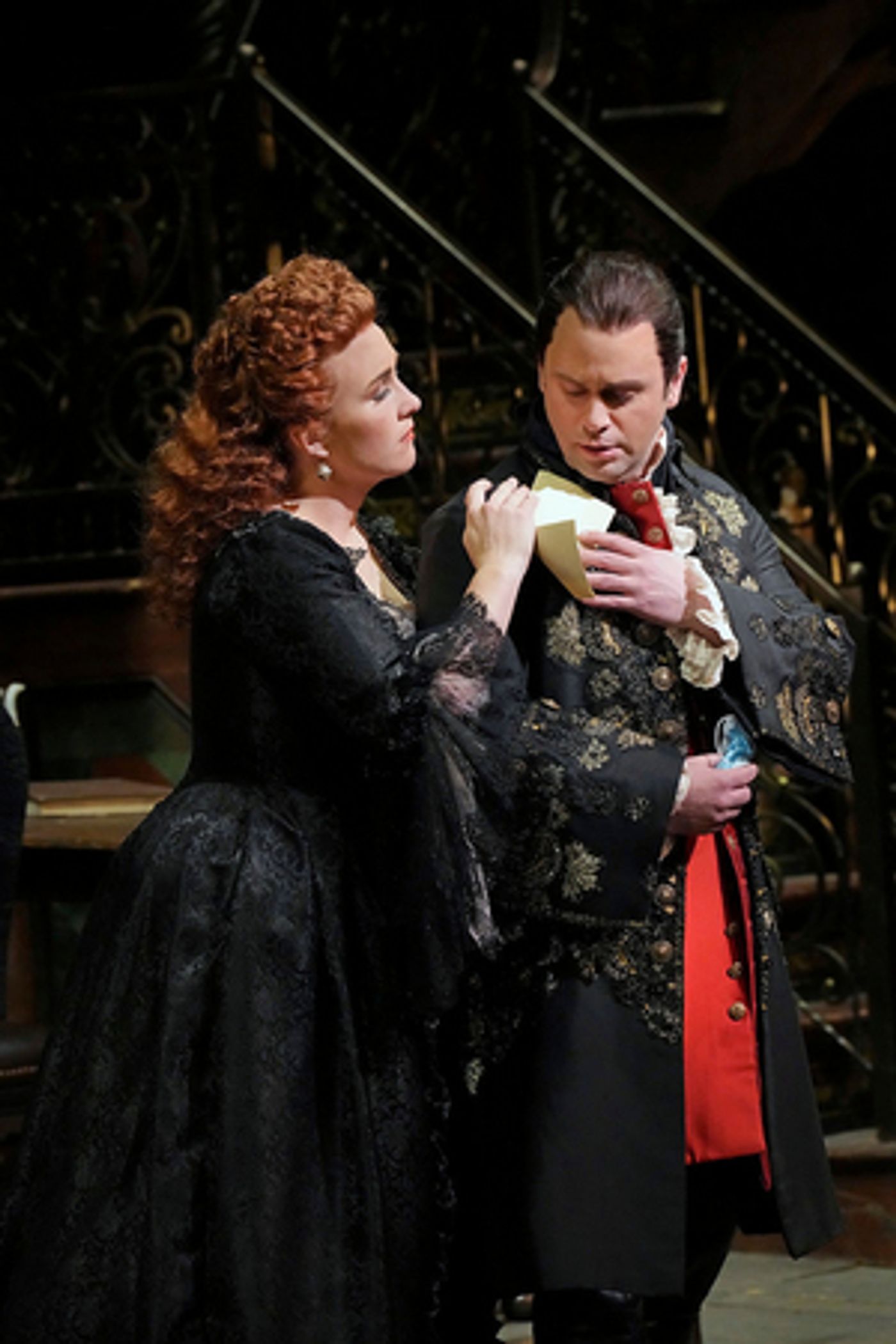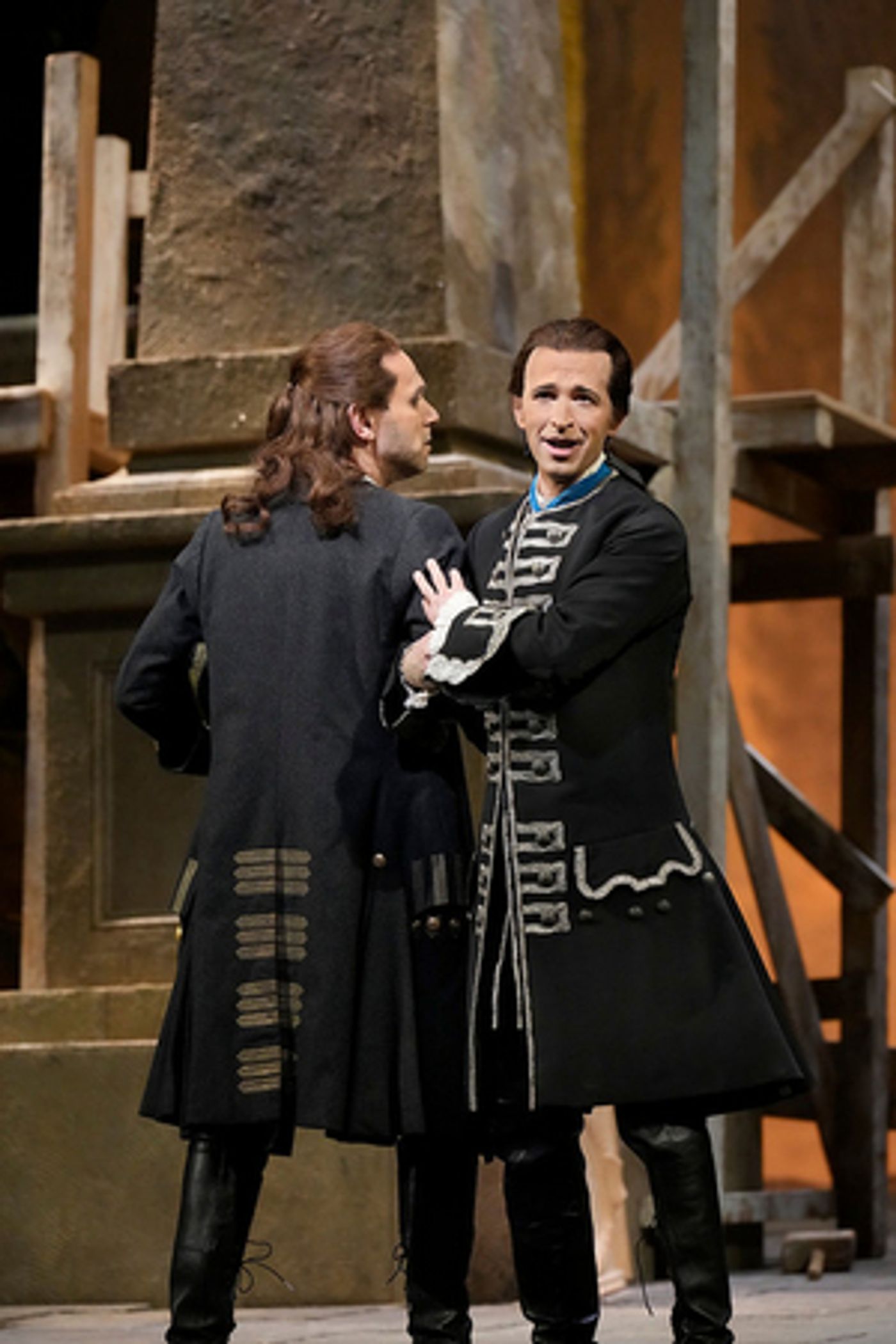Review: Dazzling RODELINDA Proves the Met's Not Too Big To Handle Handel
Van den Heever, Cooke, Appleby, Davies, Costanzo Lead a Spectacular Evening of Singing

Ken Howard/Met Opera
If Friday night's performance of Handel's RODELINDA sometimes seemed like it was never going to end--it was quickly approaching the witching hour by the time the curtain calls were over, having started at 7:30--it certainly wasn't the fault of the cast but Handel himself and librettist Nicola Haym. With ornamentation galore and da capo arias that strung phrases along one time after another (and a plot to make your head spin), it set challenges for everyone on stage, both musically and dramatically. And they were certainly up to it.
Elza van den Heever, Sasha Cooke, Paul Appleby, Iestyn Davies and Anthony Roth Costanzo--and the Met orchestra under Harry Bicket--were in fine fettle. Bicket has this kind of music in his DNA, it seems--I've heard him with the English Concert at Carnegie Hall, as well as in the Met's AGRIPPINA--and he knows how to get the orchestra to play his game just the way it needs to. The additions of Jory Vinikour on continuo as well as harpsichord ripieno, Kari Jane Docter on cello, Daniel Swenberg on theorbo/arch lute, and John Lenti on theorbo/baroque guitar helped give the opera the right sound it needed.

Ken Howard/Met Opera
The singers in the piece played critical roles in its success, because the opera itself didn't exactly lay out the intricacies of their characters in the music or libretto.
This was van den Heever's virgin voyage on this particular superliner, in the title role, and she showed plenty of finesse--not to mention guts--in giving it everything she had. With a bigger voice than is often heard in this kind of music (and she has lots of it), she proved she could get her hands around it with aplomb. I'd like to hear her again when she has it completely under her skin because I'm confident she'll be even more exciting.
Though the role of was written for a contralto, mezzo Sasha Cooke was splendid as Rodelinda's sister-in-law, Eduige, whether singing on her own or in duets with other major characters. Tenor Paul Appleby's voice (as Grimoaldo, who wants the throne) seems to be getting bigger and broader, characteristics that were called on throughout the opera. He doesn't usually get to play the bad guy (though he has to switch lobsters and dance before he walks off into the sunset with Eduige), he got to call on his considerable dramatic skills throughout the piece.

Ken Howard/Met Opera
Then there were the countertenors, two of them this time around and quite contrasting. Iestyn Davies found the role of Bertarido (king of Lombardy, thought dead when the opera starts) to be one of his most congenial, to my ears. Sounding richer than when I heard him last, this felt like a role he was born to play and he was enjoying every minute of it. If he sounded a bit tired by the end, who could blame him, elegant as he was?
Costanzo (Unulfo) has a lighter, reedier sound and dead-on coloratura. He is a ferocious singer who knows how to hold the stage without any extraneous business, and his voice was a good contrast to Davies, showing all countertenors don't sound alike. As he's proven recently in AKHNATEN and AGRIPPINA at the Met (also last summer in Santa Fe's LORD OF CRIES), he's a stage animal of the first degree.
Bass-baritone Adam Plachetka was the evil Garibaldo, who believes power should be seized and ensured at any cost, and tries to come between Eduige and Grimoaldo (who can't make up his mind about what and who he wants).
Stephen Wadsworth's production, which dates from 2004, with Thomas Lynch's marvelous scenic design and Peter Kaczorowski's lighting, kept things rolling along (literally, since the set moved back and forth from the wings, as well as up and down, since Act II is partially set in a dungeon), worked like a Swiss timepiece. The costumes by Martin Pakledinaz were elegant, though he was sometimes was limited by the palette demanded (eg, lots of black).
It was long held that a house as big as the Met was not suited for Handel's work and its often-delicate nature. (The first New York performance of the 1724 RODELINDA, scheduled for the fall of 1931, was supposed to take place not at the Met or Carnegie Hall, but at a Broadway theatre, the Martin Beck.) Friday night's performance proved that you shouldn't take note of everything you hear.
There are just four more performances of RODELINDA this season. For more information see the Met's website.
Reader Reviews
Videos

